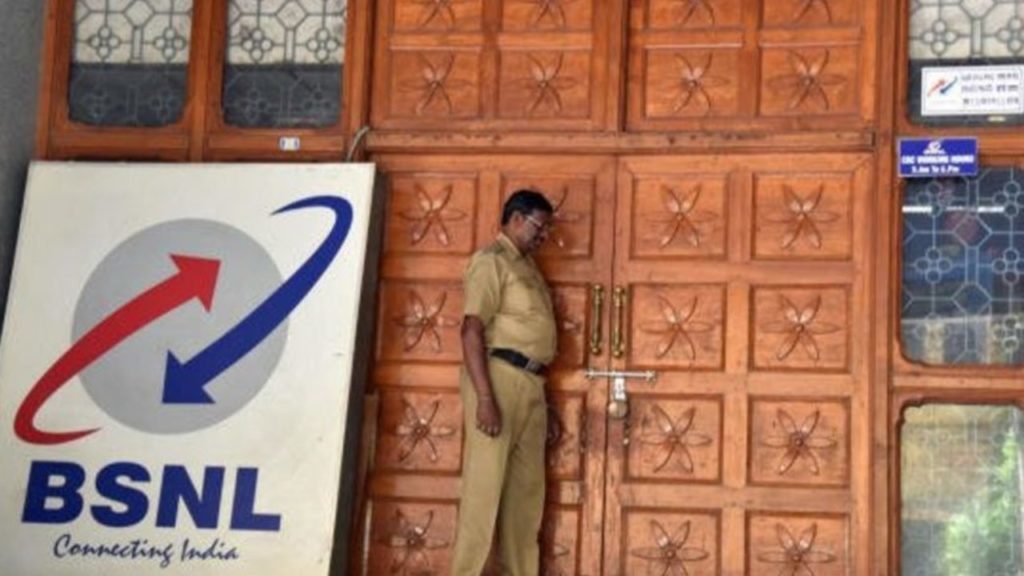The Department of Telecommunications (DoT) has unveiled plans for a second voluntary retirement scheme (VRS) for Bharat Sanchar Nigam Limited (BSNL). This move aims to reduce the workforce by approximately 35%, targeting 18,000-19,000 employees, as part of the ongoing efforts to improve the financial health of the state-run telecom giant.

Approval Process and Current Status
The VRS proposal has been greenlit by BSNL’s board and submitted to the Ministry of Communications. It now awaits approval from the Ministry of Finance, led by Nirmala Sitharaman, before heading to the Cabinet for final consideration.
With this proposal, BSNL aims to slash its annual employee wage expenses, which currently stand at ₹7,500 crore, constituting 38% of the company’s revenue. The proposed scheme is projected to bring this down to about ₹5,000 crore annually.
Financial Implications
To fund the VRS, BSNL has sought ₹15,000 crore. According to senior officials, discussions are ongoing, though no definitive decision has been reached. This significant funding request highlights the urgency of alleviating BSNL’s financial burden, especially with the absence of commercial 4G data services impacting its market competitiveness.
BSNL’s Financial and Workforce Landscape
BSNL recorded a revenue of ₹21,302 crore in FY 2023-24, showing a marginal improvement over the previous year. The organization’s workforce comprises over 30,000 non-executives and 25,000 executives. The proposed VRS is seen as a crucial step towards achieving greater efficiency and fiscal stability for the telecom giant.
A Look Back at BSNL’s Revival Efforts
This isn’t BSNL’s first attempt at restructuring. In 2019, the government approved a ₹69,000 crore revival package for BSNL and MTNL, including an earlier VRS. At that time, nearly 93,000 employees opted for retirement under the scheme, which cost around ₹17,500 crore, factoring in pensions and gratuities. However, challenges such as salary delays arose due to the reduced workforce.
As BSNL braces for another major workforce adjustment, stakeholders hope this strategic move will pave the way for a stronger and more competitive future.












